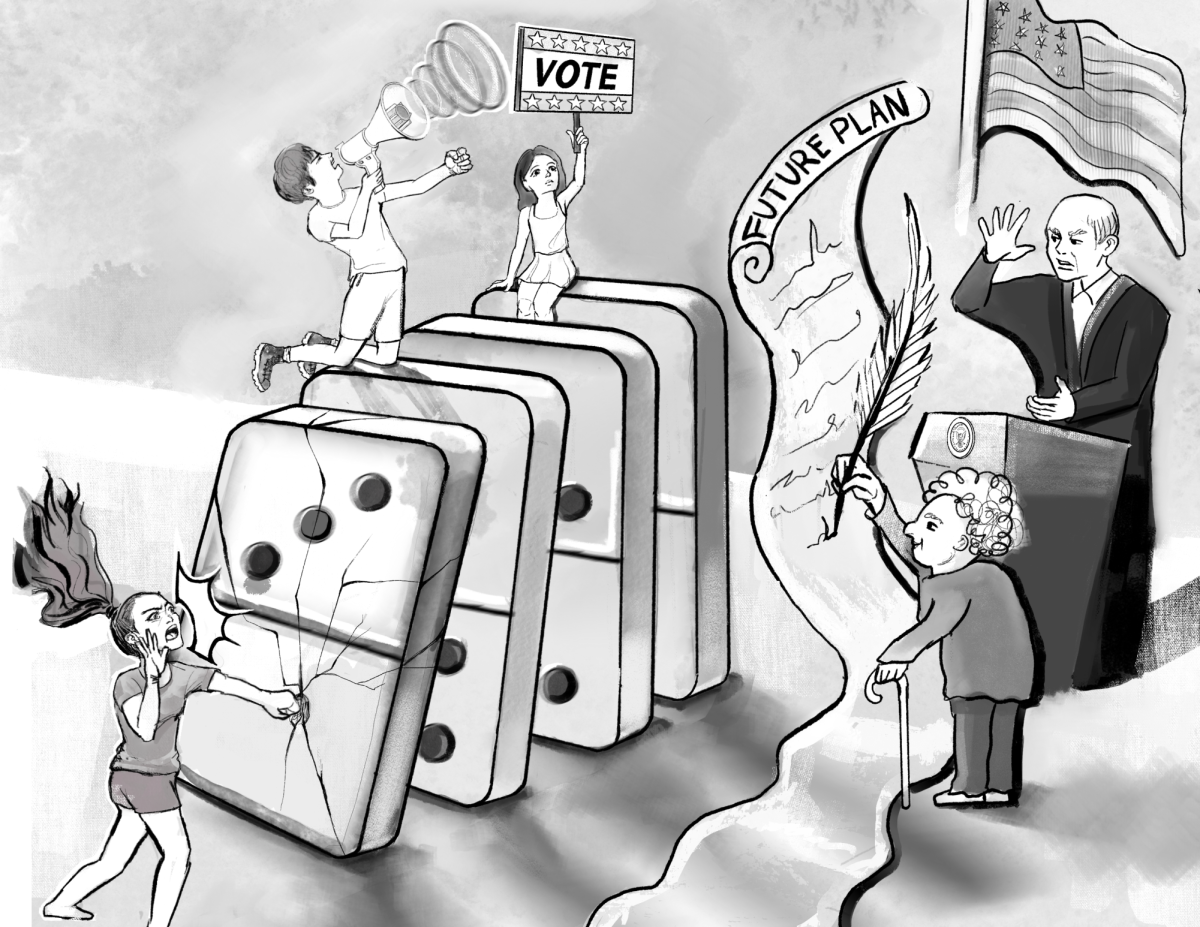If students are to be the leaders of the future, we have to start today and vote. We must be the generation that shows up to make change.
With the expansion of the internet, our generation is one of the most informed and outspoken in recent history. Yet, when it comes to voting, too many of us sit on the sidelines. If we truly want to build a future that reflects our values, it starts by showing up at the polls this election season.
But you don’t have to have a vote to have a voice in our democracy. The candidates in 2024—from the Presidency and Congress to local judgeships—are campaigning on issues that affect your life, whether or not you’re 18. The decisions being made today will shape your future. Not every student has a voice in this current election, but everyone has a stake in the future.
Regardless of your voting eligibility, you know someone who can vote: a parent, sibling, friend or relative. If there’s an issue you’re passionate about, tell them about it. If there’s a candidate you care for, educate them on their views. Even just a simple text message to your friend increases the likelihood that they’ll vote by 8.3%, according to a study by Columbia University. This form of relational organizing is one of the most effective forms of advocacy, and you don’t have to be able to vote to participate in the process.
Whatever you do, make your voice heard. Attend a protest, volunteer for a campaign, write letters to your elected officials, raise awareness on social media and speak up for your values. Advocacy is a powerful way for individuals to collectively voice their concerns, demand change and hold those in power accountable. Protests serve as a visible and direct form of political participation, often empowering solutions to crises that are otherwise ignored or underrepresented. Awareness unites people around common causes, fostering a sense of community and solidarity while bringing attention to pressing injustices. The time to get involved is now. The issues you care about need your voice to amplify their impact.
Social media has revolutionized what it means to be politically active, and everyone has the opportunity to make their voice heard. From Black Lives Matter to #MeToo, social media has been a pivotal tool bringing awareness and making change. But voting is more than a trend—it’s a democratic principle foundational to our nation.
In just the past two years, students at Naperville Central have staged protests on gun violence and COVID-19 masking regulations. The issues affecting your future won’t wait until you graduate. You can and should play an active role in politics. The leaders of tomorrow don’t just appear; they start engaging now.
And if you are eligible, vote. You can register (or pre-register if you’re 16 or older) at ova.elections.il.gov.
Your influence on elections is real and your vote is not inconsequential. Politicians represent the voices of the electorate, and the best way to contribute is to make your voice heard at the polls on or before Nov. 5.
Only 41.8% of eligible 18-year-olds voted during the 2020 election. Though that number was higher than previous years, it’s still lower than any other age demographic tracked by the U.S. Census. And with comparatively low turnout, youth are limited in their ability to influence the electoral process.
America isn’t a monolith; no other person shares the exact viewpoints and values that you hold. The best way to get politicians in power to care about the issues that you care about is to make your voice heard at the polls. Without that democratic principle, there’s no electoral incentive to legislate on those issues.
Candidates’ visions for the future—the defining subject of every election—impact you whether you vote and make your voice heard or sit complacently on the sidelines. So research the election, learn about the problems affecting America and above all, VOTE!




